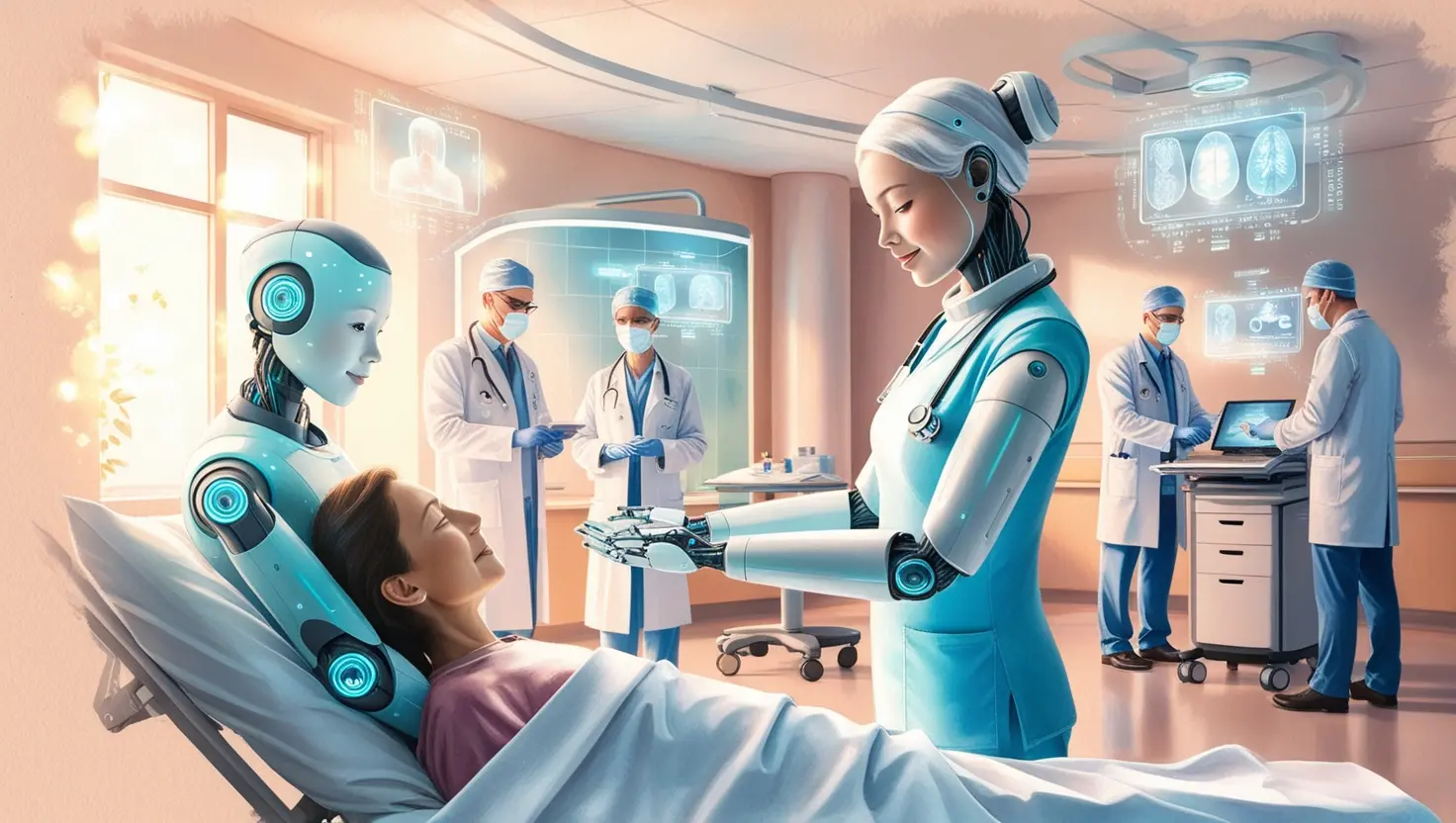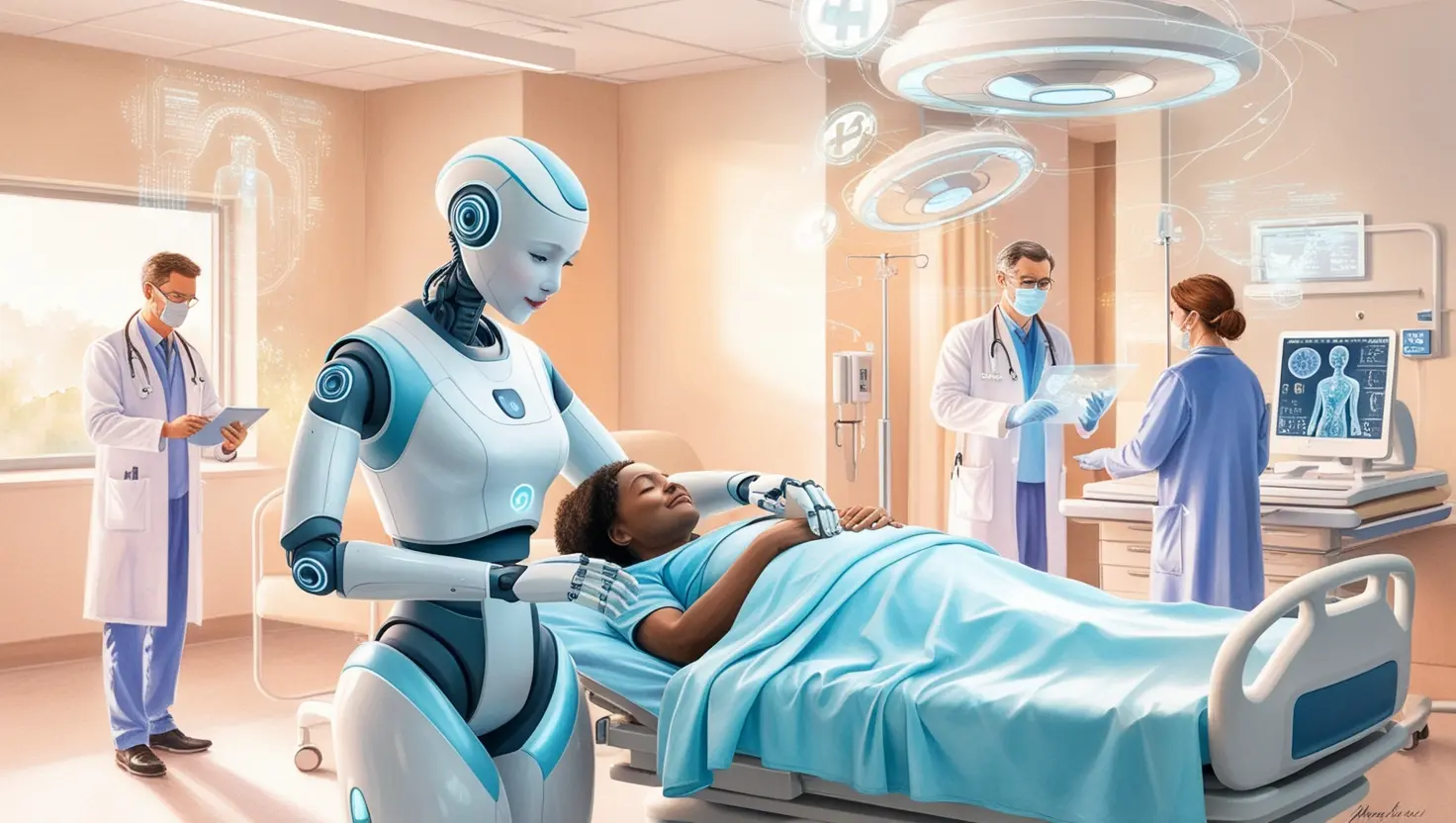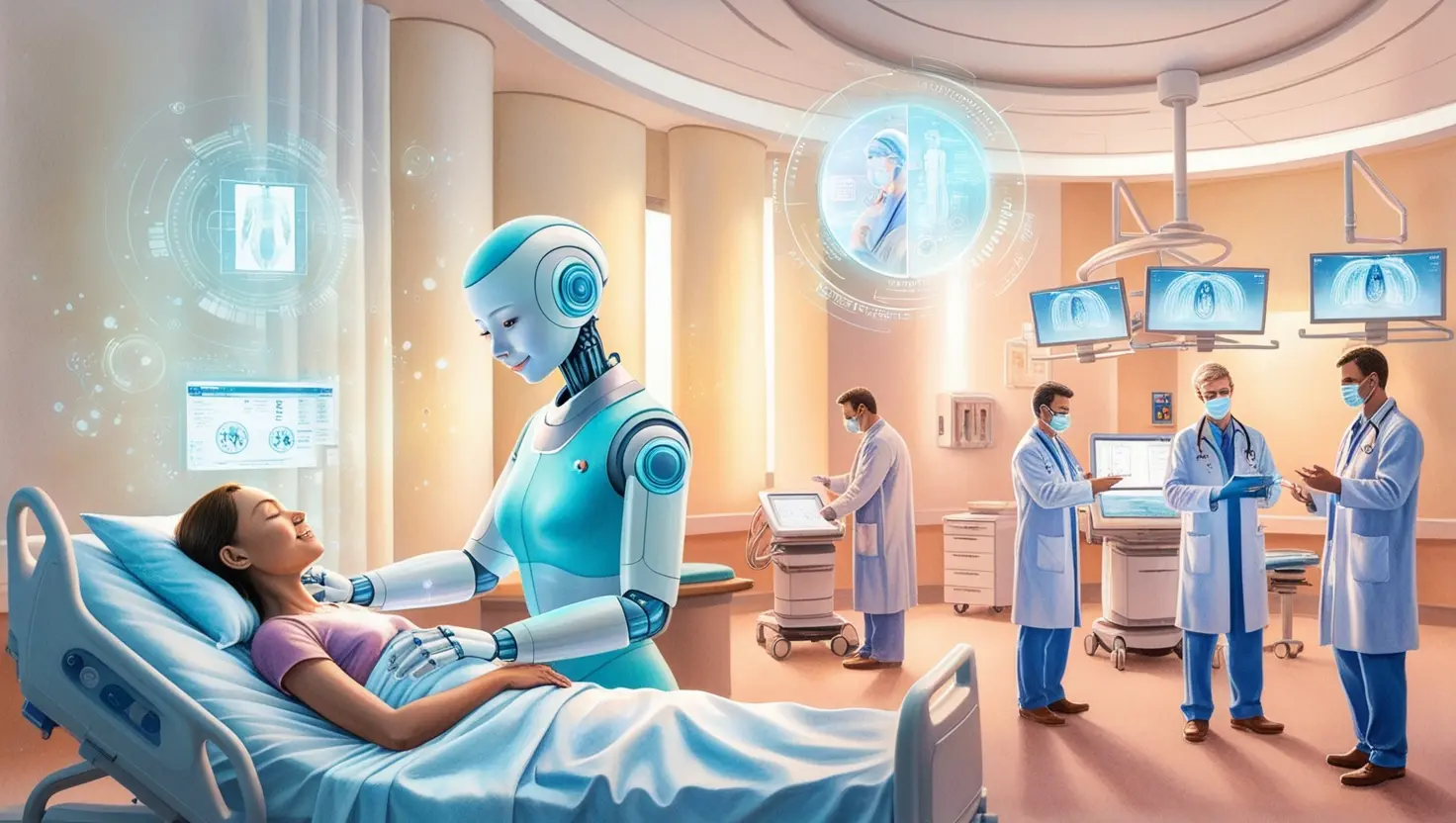Artificial Intelligence (AI) is revolutionizing healthcare in 2025 by enhancing diagnostics, personalizing treatments, streamlining operations, and improving patient care. From AI-driven robotic surgeries to real-time disease prediction, healthcare is experiencing an unprecedented transformation.
1. AI-Powered Diagnostics & Early Detection
AI algorithms now detect diseases like cancer, Alzheimer’s, and heart conditions years before symptoms appear. Advanced machine learning models analyze medical imaging scans (MRI, CT, and X-rays) with higher accuracy than human radiologists, reducing misdiagnoses.
💡 Example: Google’s DeepMind AI identifies breast cancer 11.5% more accurately than doctors, minimizing false positives and negatives.
2. Personalized Medicine & AI-Driven Drug Discovery
AI has made precision medicine a reality. Instead of a one-size-fits-all approach, AI tailors treatments based on a patient’s genetics, lifestyle, and medical history.
🚀 In drug discovery, AI accelerates research by analyzing millions of compounds in days instead of years. This speed was crucial in developing new mRNA vaccines and personalized cancer therapies.
3. AI Chatbots & Virtual Health Assistants
AI-powered chatbots and virtual assistants now handle patient queries, appointment scheduling, and even provide mental health support. These bots offer 24/7 medical advice, reducing hospital workload and improving accessibility.
🩺 Example: AI bots like Ada Health & Babylon assist patients by diagnosing minor illnesses and recommending whether to visit a doctor.
4. Robotic Surgeries & AI-Assisted Procedures
AI-powered robotic arms assist in complex surgeries, offering higher precision, minimal invasiveness, and faster recovery. These AI-driven robotic systems continuously learn, improving their accuracy with each operation.
🔬 Example: The da Vinci Surgical System, powered by AI, allows doctors to perform complex procedures with sub-millimeter precision.
5. AI in Medical Research & Predictive Analytics
AI helps doctors predict disease outbreaks, monitor patient recovery, and forecast hospital resource demand with real-time analytics. AI-driven predictive models help hospitals prepare for pandemics and optimize resources efficiently.
📈 Example: AI-powered prediction models warned of potential COVID-19 surges weeks in advance, allowing hospitals to prepare for increased patient inflow.
6. AI & Wearable Health Tech
Smartwatches and health trackers use AI to monitor vitals like heart rate, blood oxygen levels, and ECG patterns. These devices alert users about irregularities, potentially preventing heart attacks and strokes before they happen.
⌚ Example: The Apple Watch’s AI-driven ECG feature has saved lives by detecting atrial fibrillation early.
7. AI & Mental Health: Therapy on Demand
AI-driven mental health platforms offer real-time therapy, meditation coaching, and emotional support. AI chatbots like Woebot and Wysa provide personalized coping strategies for anxiety, depression, and stress.
🌍 The global mental health crisis is being tackled with AI-powered cognitive behavioral therapy (CBT) chatbots, making therapy more accessible.
The Future of AI in Healthcare
By 2030, AI will likely eliminate 50% of manual medical tasks, allowing doctors to focus on complex cases. With the integration of quantum computing, AI will decode diseases at a molecular level, revolutionizing how we approach incurable conditions.
💡 The healthcare industry is embracing AI-driven advancements at an unprecedented pace, ensuring faster diagnoses, better treatments, and higher patient survival rates.
🧠 Test Your Knowledge: AI in Healthcare Quiz
Question: What is one major way AI improves cancer detection?
A) AI replaces human doctors
B) AI predicts disease symptoms after they appear
C) AI analyzes scans with higher accuracy than human radiologists
D) AI prescribes medicine without doctor approval
(Answer at the end of this post! 😉)
🤔 What’s Your Opinion?
Do you think AI in healthcare is advancing too fast, or do you welcome these changes?
Drop your thoughts below! 👇
📌 (Answer to Quiz: C – AI analyzes scans with higher accuracy than human radiologists)



How Is Artificial Intelligence Transforming Healthcare in 2025?